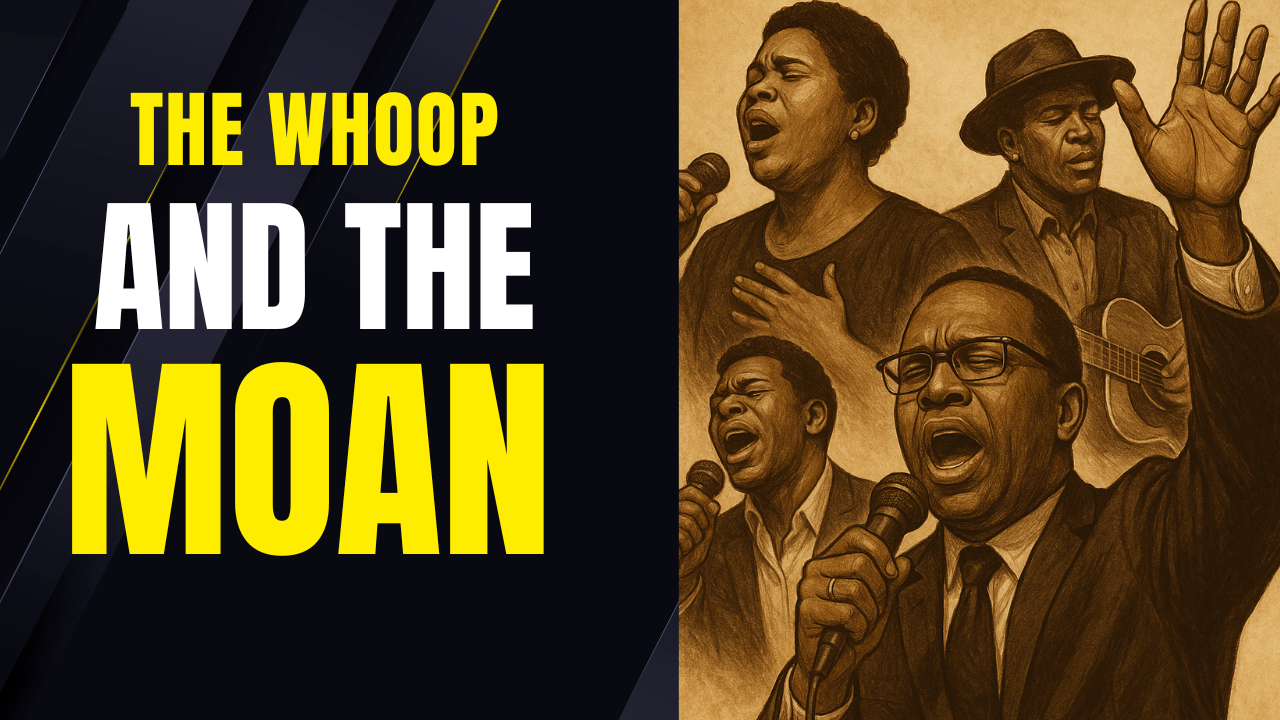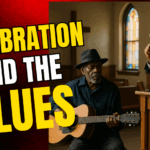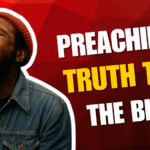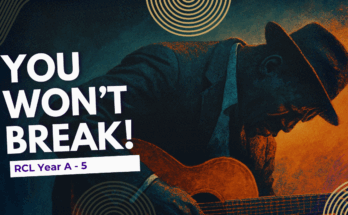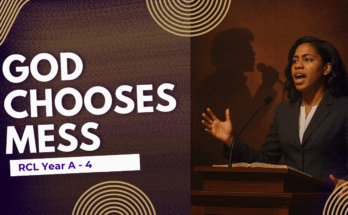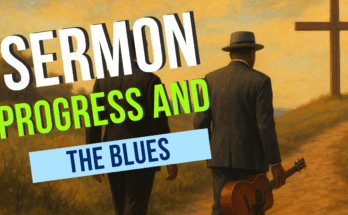As an Amazon Associate I earn from qualifying purchases.
You ever notice it?
That preacher starts to rise near the end of the sermon — voice bending, throat tightening, rhythm building. And suddenly, they’re not just talking. They’re singing something deeper. Crying out. Sliding in and out of pitch. Repeating phrases like a hook.
And if you close your eyes — you might swear it’s a bluesman.
But you’d also be right if you thought it was a soul singer. Or a gospel soloist. Or even someone moaning a spiritual on the chain gang.
Because the moan runs through all of them:
Preaching
Blues
Soul
Gospel
Spirituals
Different platforms. Same sound. Same story. Same survival.
And yes — same flourishing.
The Moan: Black Music’s First Instrument
Before the organ, the guitar, or the choir — there was the voice. And that voice moaned.
Not for decoration. Not for drama. But for truth.
In the field songs of the enslaved — the moan was memory.
In the spirituals — it was resistance.
In the blues — it became testimony.
In gospel — it turned into praise.
In soul — it voiced desire and heartbreak.
In preaching — it whooped out hope through a weary throat.
The message is the same across them all:
Whether happy, sad, or somewhere in between — I’m still here.
Groove and Groan
Blues rides a groove. Soul rides a groove. Gospel swings.
And when a preacher whoops? That’s groove too.
It’s in the cadence.
In the stomp of the foot.
In the rhythm of repetition.
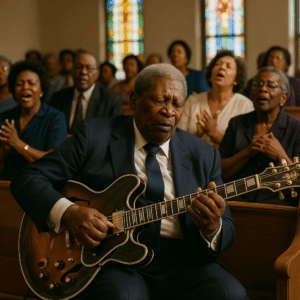 You hear it in Aretha’s runs.
You hear it in Aretha’s runs.
In Otis Redding’s screams.
In that Southern preacher closing a sermon with a holy melody.
Groove ain’t about sound only. It’s emotional rhythm.
Tension and release.
Groan and glory.
And the body feels it all.
Improvisation: When the Spirit Hits
You can practice.
You can prepare.
But when the Spirit moves — you let go.
The soul singer leaves the chart.
The bluesman bends the note.
The preacher drops the script and rides the sound.
Improvisation is not chaos — it’s freedom.
Freedom to feel.
Freedom to testify.
Freedom to be fully present in the pain, the joy, the breakthrough.
Because deep in the heart of this tradition is a sacred call:
“I’mma sing when the Spirit says sing… and obey the Spirit of the Lord.”
Gonna sing. Gonna shout. Gonna pray. And obey.
That’s how a moan becomes a sermon.
How a run becomes a praise.
How a whoop becomes a prophetic cry.
Testimony Across Genres
Every tradition testifies:
Blues testifies about heartbreak.
Soul testifies about desire.
Gospel testifies about deliverance.
Spirituals testify about freedom.
Preaching testifies about God.
But listen closely — the tone of truth is the same.
Marvin Gaye sounds like a preacher on What’s Going On.
Mahalia Jackson sounds like a blueswoman on Trouble of the World.
B.B. King sounds like a worship leader when he plays The Thrill Is Gone.
It’s not the setting — it’s the sound that carries the story.
The Moan Is Rooted
This sound is older than America.
It’s African.
It came across the water on slave ships.
It endured cotton fields, brush arbors, storefront churches, and back alley clubs.
It is the language of us —
The language of our hopes,
The language of overcoming,
The language that says, We are still here. And we’re not done yet.
The moan is not just musical. It’s memory.
It’s not a performance. It’s presence.
That’s why:
The preacher whoops.
The gospel singer holds a note.
The soul crooner cries out.
The bluesman moans.
Because silence was never an option.
And rising was never out of reach.
The Pentatonic Scale: The Sound Beneath the Moan
What’s the hidden code behind all of it?
The pentatonic scale.
Just five notes.
But those five notes built the entire foundation of:
Spirituals
Blues
Gospel
Soul
And yes — the whoop.
You’ll often hear it in minor pentatonic form: 1–♭3–4–5–♭7.
The same notes in Go Down Moses, Sometimes I Feel Like a Motherless Child, and your favorite blues solo.
When the preacher whoops:
“I said… He’s a bridge… over troubled water…”
That’s not just talk. That’s music.
That’s Black sacred jazz in real time.
Melisma: Making One Word Preach
You ever hear a gospel singer ride one syllable for a full 10 seconds?
“Jeeeeeeeeeeeeeeeeesus…”
That’s melisma — stretching a syllable across multiple notes.
It’s not just vocal skill. It’s emotional exegesis.
One word won’t do — so we run it until it breaks open.
Aretha stretched it into revelation.
Mahalia sang one line like it was Genesis to Revelation.
Marvin Gaye bent syllables like psalms.
Preachers whoop until the sound says what the sentence never could.
This is how Black music feels truth.
It holds a word till it releases power.
Biblical Groaning: The Spirit Sounds Like Us
The Bible doesn’t skip the moan.
“The Spirit himself intercedes for us with groanings too deep for words.”
— Romans 8:26
That means the Spirit groans too.
Israel groaned in slavery — and God heard.
Jesus groaned at the tomb — and the dead got up.
The Spirit groans when we can’t speak for ourselves.
So when a preacher whoops —
When a singer bends a note —
When a bluesman moans —
They are in holy company.
The moan isn’t weakness. It’s Spirit-speak.
Final Words
So when you hear:
A preacher whooping
A gospel singer running a phrase
A soul singer stretching one word
A bluesman bending one note
Know this:
They are tapping into a sound passed down through struggle.
They are riding the pentatonic scale.
They are groaning with the Spirit.
They are telling the truth musically.
They are healing in public.
And in every cry, every run, every whoop and wail — the message remains:
Whether happy, sad, or somewhere in between — I’m still here.
That’s the moan.
That’s the run.
That’s the whoop.
That’s the groan.
That’s Black sacred sound —
Same sound. Same story. Same survival.
And yes — same flourishing.
Amazon and the Amazon logo are trademarks of Amazon.com, Inc, or its affiliates.

